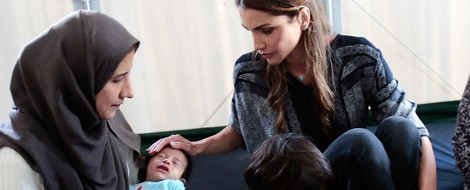Your podcast discovery platform
Curious minds select the most fascinating podcasts from around the world. Discover hand-piqd audio recommendations on your favorite topics.

piqer for: Climate and Environment Global finds
Born in the south of Mexico, she was raised in rebel Zapatista autonomous municipalities to later settle down in San Cristobal de las Casas where she cofounded ''La Casa de las Flores'', a non-profit dedicated to educate, feed and care for the marginalized children living on extreme poverty in the streets of her city. After graduating from Nursing school she enrolled in Biotechnology and Astrophysics.
Queen Rania Addresses The Most Spoken Topics Of The Moment
Brave, audacious, intelligent and dauntless, Queen Rania of Jordan is not any queen. Ever since 22 of March, year 1999, when she was crowned royalty after having married Abdullah the Second, she has used all of her power and influences to support the ideals of which she so firmly believes in, such as education and wellbeing of women and children.
In the late years all the conflicts that have been taking place on the Middle East have left as consequence hundred of thousands of missing people, broken families and millions of refugees — individuals whom Queen Rania refuses to leave untended.
"Her Majesty Rania Al Abdullah lives in a kingdom surrounded by war. Jordan shares borders with Syria, Iraq and Israel/Palestine. Unlike some of its oil-rich neighbors, it is a poor country, but it is giving a lesson to the world by taking in more refugees than the whole of Europe... It’s as if the UK took in the entire population of Holland."
In this interview for The Times, the forty-six-year-old mother of four points out her opinion on multiple interesting topics of global relevance with the elegance, perspicacity and graceful sagacity that so characterize her.
''I think change needs to be egoless. It's not about my leaving my fingerprints or a legacy. It's more important to be part of a process by rolling up your sleeves, being on the ground, initiating projects, starting campaigns — you know, building things. ''
—Queen Rania of Jordan
*NOTE: In order to read the interview, you must register to The Times. This has no cost.
